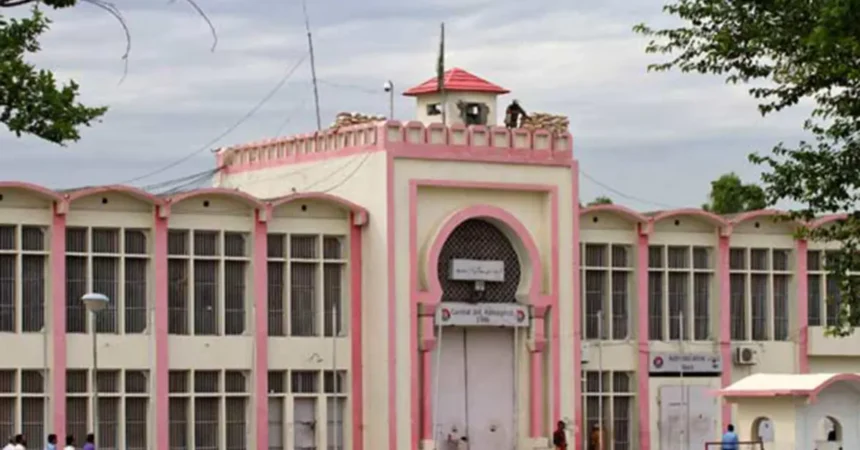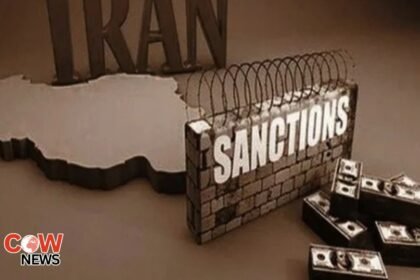In a surprising move that has sparked debate and concern among human rights advocates, the Punjab government has announced a ban on all meetings within Adiala Jail, one of Pakistan’s most well-known correctional facilities. This decision marks a significant shift in the management of inmate interactions and has raised questions about the implications for both inmates and their families.
Understanding the Context: Adiala Jail
Adiala Jail, located in Rawalpindi, is notorious for its overcrowding and challenging conditions. Established to house male prisoners, it has been the subject of scrutiny due to its handling of high-profile inmates, including politicians, criminals, and those accused of terrorism. The jail is seen as a microcosm of the broader issues facing Pakistan’s correctional system, including inadequate facilities, lack of proper healthcare, and limited access to legal representation.
The recent decision to ban meetings within the jail premises has raised eyebrows and concerns regarding the treatment of inmates. Family visits have long been a vital aspect of the prison experience, allowing inmates to maintain connections with their loved ones, which is essential for their emotional well-being and rehabilitation.
The Ban on Meetings: Details and Implications
The Punjab government’s decision to ban all meetings inside Adiala Jail was officially announced through a government circular. This directive prohibits not only family visits but also meetings with lawyers and other individuals who play a crucial role in the inmates’ lives. The government justified this move by citing security concerns and the need to maintain order within the facility.
1. Impact on Inmate Rights
The ban on meetings raises serious questions about the rights of inmates. International human rights organizations advocate for the humane treatment of prisoners, emphasizing that maintaining family ties is essential for rehabilitation and reintegration into society. By restricting inmate access to their families and legal representatives, the government may inadvertently contribute to feelings of isolation and despair among prisoners.
2. Legal Representation Challenges
One of the most alarming consequences of this ban is the impact on inmates’ access to legal representation. Meetings with lawyers are crucial for inmates to prepare their defense, discuss legal strategies, and understand their rights within the judicial system. Without regular access to their legal representatives, inmates may face significant disadvantages in their legal battles, potentially leading to unjust outcomes.
3. Family Connections and Rehabilitation
The emotional and psychological well-being of inmates is significantly influenced by their ability to maintain family connections. The absence of meetings with family members can exacerbate feelings of loneliness and hopelessness, negatively affecting their mental health. Studies have shown that inmates who maintain strong family ties are more likely to engage in rehabilitation programs and successfully reintegrate into society upon release.
4. Security Concerns vs. Human Rights
While the Punjab government cites security concerns as the primary reason for the ban, critics argue that measures can be taken to enhance security without completely restricting meetings. Implementing stricter security protocols during visits could address safety issues while still allowing inmates to maintain vital connections with their families and legal counsel.
Broader Context: Prison Reform in Pakistan
The ban on meetings at Adiala Jail is emblematic of larger systemic issues within Pakistan’s prison system. Over the years, there has been growing awareness of the urgent need for prison reform in the country. Several factors contribute to this pressing issue:
1. Overcrowding and Poor Conditions
Pakistan’s prisons, including Adiala Jail, are often overcrowded, leading to inhumane living conditions for inmates. Overcrowding contributes to a lack of access to basic healthcare, sanitation, and rehabilitation programs. Reform efforts must prioritize addressing these conditions to ensure that inmates are treated humanely.
2. Lack of Rehabilitation Programs
Many prisons in Pakistan lack effective rehabilitation programs designed to help inmates reintegrate into society after serving their sentences. Education, vocational training, and psychological support are crucial components of rehabilitation that can help reduce recidivism rates and support successful reintegration. The ban on meetings further limits inmates’ access to these essential services.
3. Advocacy for Inmate Rights
Human rights organizations and activists have been vocal about the need for comprehensive prison reforms in Pakistan. They argue that the government must prioritize the rights and dignity of inmates, ensuring that they are treated fairly and justly. The ban on meetings contradicts the principles of humane treatment and raises concerns about the overall direction of prison policy in the country.
Public Reaction and Advocacy Efforts
The announcement of the ban on meetings at Adiala Jail has elicited a strong response from various sectors of society. Human rights advocates, legal experts, and families of inmates have expressed their concerns, emphasizing the need for the government to reconsider its decision.
1. Calls for Reconsideration
Legal experts have urged the government to reconsider the ban, advocating for a balanced approach that prioritizes security without infringing on the rights of inmates. They emphasize that maintaining contact with family and legal representatives is a fundamental right that should not be compromised.
2. Media Coverage and Awareness
Media coverage of the ban has helped raise awareness about the challenges faced by inmates and the need for prison reforms. Journalists and activists are using various platforms to highlight the stories of individuals impacted by the ban, putting pressure on the government to address the issue.
3. Support from Civil Society Organizations
Civil society organizations have stepped up their efforts to advocate for the rights of inmates and push for meaningful reforms in the prison system. They are working to mobilize public support and engage with policymakers to ensure that the voices of inmates and their families are heard.
Future Considerations: Seeking Solutions
As the situation surrounding the ban on meetings at Adiala Jail continues to evolve, several considerations must be addressed to find a solution that respects inmate rights while addressing security concerns.
1. Reassessing Security Protocols
The government should conduct a thorough assessment of existing security protocols within Adiala Jail to identify areas for improvement. This assessment could lead to the implementation of enhanced security measures that ensure the safety of all individuals within the facility without resorting to a blanket ban on meetings.
2. Engaging Stakeholders
Involving stakeholders, including inmate families, legal experts, and human rights organizations, in discussions about prison policies can lead to more informed decision-making. Collaborative efforts can help develop solutions that consider the perspectives of all parties involved.
3. Focusing on Rehabilitation
The government should prioritize rehabilitation programs that address the root causes of criminal behavior and support inmates’ reintegration into society. By investing in education, vocational training, and mental health services, the government can reduce recidivism rates and improve the overall prison experience.
The ban on meetings at Adiala Jail raises significant concerns about the treatment of inmates and the future of prison reform in Pakistan. As advocates for human rights and justice continue to voice their concerns, the government must take meaningful steps to address the underlying issues within the prison system. By prioritizing the rights of inmates and fostering an environment conducive to rehabilitation, Pakistan can move toward a more just and equitable society.
#Punjab #AdialaJail #PrisonReform #InmateRights #GovernmentPolicy #HumanRights #Education #Rehabilitation #Overcrowding #LegalRepresentation







